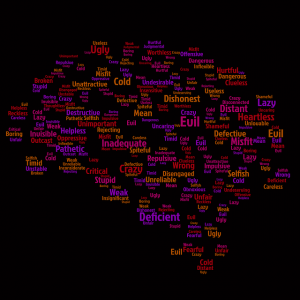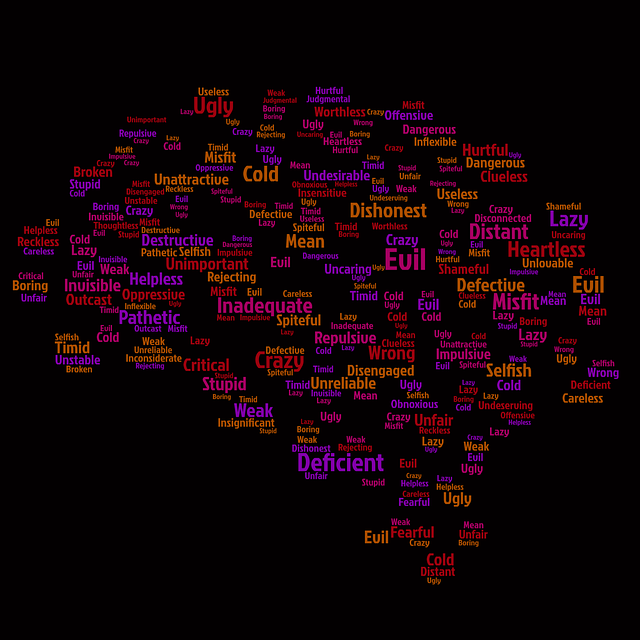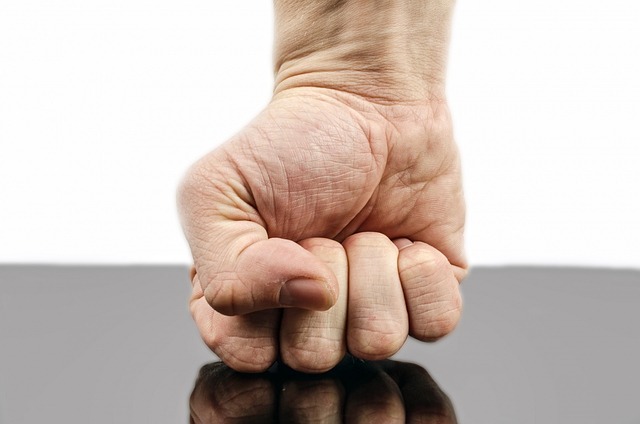We often encounter clients who struggle with feelings of guilt from past experiences.
Whether it’s a mistake made in a relationship, a poor decision at work or school, or something more serious like criminal behavior, the weight of past actions can be overwhelming and difficult to shake.
It’s important to acknowledge that feeling guilty is a normal emotional response to wrongdoings. However, when guilt becomes all-consuming and interferes with daily life, it’s time to take action.
In this article, we will explore some practical strategies for dealing with guilt from the past in a healthy and productive way. By working through these techniques, you can find peace and move forward towards a brighter future.
Recognizing The Impact Of Guilt On Mental Health
 Guilt can have a significant impact on mental health, and it is important to recognize the negative consequences it can have.
Guilt can have a significant impact on mental health, and it is important to recognize the negative consequences it can have.
When individuals experience guilt, they may feel overwhelmed with emotions such as shame or regret, which can lead to feelings of anxiety and depression.
These negative emotions can also impact relationships and make individuals feel isolated from others.
To cope with guilt, individuals may use various coping mechanisms such as avoidance or distraction.
While these methods may provide temporary relief, they often do not address the underlying issues causing the guilt.
It is essential for individuals to recognize their feelings of guilt and work through them in a healthy way.
Therapy can be an effective way to address feelings of guilt and develop healthy coping mechanisms.
A therapist can provide a safe space for individuals to explore their thoughts and feelings surrounding guilt, identify patterns of behavior that contribute to their guilt, and work towards developing strategies for managing these feelings in the future.
With time and effort, individuals can learn to manage their guilt in a way that promotes positive mental health outcomes.
Understanding The Root Causes Of Guilt
As we discussed in the previous section, guilt can have a significant impact on our mental health. It can lead to anxiety, depression, and even physical symptoms such as headaches or stomachaches. However, recognizing the impact of guilt is just one step in dealing with it. The next step is understanding the root causes.
Exploring triggers is an important part of understanding why we feel guilty. Triggers are events or situations that remind us of past mistakes or actions that we regret. Once we identify these triggers, we can start to understand why they make us feel guilty and work on ways to cope with them.
Coping mechanisms are another crucial aspect of dealing with guilt from the past. Coping mechanisms are strategies that we use to manage difficult emotions, such as guilt. Some examples of coping mechanisms include mindfulness meditation, talking to a trusted friend or family member, or engaging in activities that bring us joy and fulfillment.
By exploring triggers and developing healthy coping mechanisms, we can start to heal from our past experiences and let go of unnecessary guilt.
Remember that dealing with guilt is a process and it takes time and effort to overcome. However, with patience and self-compassion, it is possible to move forward towards a happier and healthier life.
Practicing Self-Compassion And Forgiveness
Cultivating empathy towards oneself is an essential aspect of self-compassion. It involves understanding and accepting the emotions that arise due to past actions, without judgment or self-blame.
Mindfulness practices such as meditation can be helpful in becoming aware of these emotions and responding to them with kindness and compassion.
Forgiveness is also a crucial component of dealing with guilt from the past. Forgiving oneself for past mistakes involves acknowledging the wrongdoing, taking responsibility for it, and making amends where possible.
It does not mean forgetting or excusing the actions but rather releasing oneself from the burden of guilt and shame.
Through practicing self-compassion and forgiveness, individuals can learn to let go of negative self-talk and build a more positive relationship with themselves.
This process takes time and effort, but it can ultimately lead to greater emotional well-being and inner peace.
Remember that everyone makes mistakes, and treating oneself with kindness and compassion is a necessary step towards healing from the pain of the past.
Seeking Support From Friends And Family
As we discussed in the previous section, practicing self-compassion and forgiveness is a crucial step towards dealing with guilt from the past. However, sometimes it can be challenging to achieve this on our own.
It’s essential to remember that seeking support from friends and family is a healthy coping mechanism that can help us overcome feelings of guilt. Creating a support system is an excellent way to deal with guilt from the past.
Talking to loved ones can provide comfort and reassurance, and it allows us to express our feelings without fear of judgment. It’s important to remember that everyone makes mistakes, and having someone listen to us without criticism or blame can be incredibly healing.
It’s okay to seek professional help if you’re struggling with feelings of guilt. Speaking with a psychologist or therapist who specializes in guilt management can provide you with the tools and resources needed to work through your emotions effectively.
Remember, it takes courage to seek help, but doing so can lead to significant positive changes in your life.
Engaging In Positive Self-Reflection And Growth
Metaphorically speaking, guilt can be compared to a heavy backpack that one is carrying. It weighs us down and hinders our ability to move forward.
Engaging in positive self-reflection and growth can be like taking out the unnecessary items from this backpack, lightening the load and allowing us to walk with more ease.
Journaling prompts can be an effective tool for engaging in positive self-reflection. Writing down our thoughts and feelings about past events can help us gain a better understanding of why we feel guilty, and what steps we can take to move forward.
Some helpful prompts include: What did I learn from this experience? How has it shaped me as a person? What actions can I take now to make amends?
Mindfulness exercises are another useful tool for dealing with guilt from the past. By focusing on the present moment, we can let go of negative thoughts associated with past events.
Mindfulness techniques such as deep breathing or meditation can help us cultivate a sense of peace and acceptance towards ourselves, despite our past mistakes.
Engaging in positive self-reflection and growth through journaling prompts and mindfulness exercises takes time and effort, but it is worth it in the end. As we let go of unnecessary guilt, we become freer to live in the present moment, enjoy our lives and relationships fully, and grow into our best selves.
Seeking Professional Help If Needed
As we continue to engage in positive self-reflection and growth, it is important to recognize that there may be moments of guilt from our past that still linger. It can be difficult to let go of these feelings of remorse, but it is important to remember that dwelling on past mistakes can hinder our ability to move forward.
One option for addressing feelings of guilt is seeking professional help. Counseling options can provide a safe and supportive environment where individuals can explore their emotions and work through past experiences. Finding a therapist who specializes in guilt and shame can be especially beneficial.
When searching for a therapist, it is important to consider factors such as their experience, approach, and compatibility with your personality and goals. Many therapists offer free consultations or initial sessions, which can help you determine if they are the right fit for you.
Keep in mind that therapy is a collaborative process and it may take time to find the right therapist and approach for your needs.
Remember that seeking help for feelings of guilt is not a sign of weakness, but rather a courageous step towards healing and growth. With the support of a trained professional, individuals can learn coping strategies, gain insight into their emotions, and develop skills to better manage feelings of guilt in the present moment.
Moving Forward With A Renewed Sense Of Purpose And Direction
Ironically, the guilt from our past can actually be a gift. It serves as a reminder of our values and morals, and allows us to recognize where we may have fallen short. However, we must not let it consume us.
Finding closure is crucial in moving forward with a renewed sense of purpose and direction. One way to find closure is through self-forgiveness. We must acknowledge our mistakes and take responsibility for our actions, but also realize that we are human and prone to error. By forgiving ourselves, we release the burden of guilt and allow ourselves to move on.
Another important step in moving forward is setting new goals. These goals should align with our values and provide direction for the future. By focusing on what we want to achieve rather than dwelling on past mistakes, we create a positive outlook for ourselves.
Dealing with guilt from the past can be difficult, but it is necessary in order to move forward with a renewed sense of purpose and direction. Finding closure through self-forgiveness and setting new goals can help us let go of the past and focus on the future. Remember, while our past may shape us, it does not define us.
Frequently Asked Questions
How Can I Come To Terms With The Guilt Of Hurting Someone I Love?
I understand the weight of guilt and how it can affect relationships with loved ones.
It’s important to acknowledge the hurt that has been caused and take responsibility for our actions.
Self-forgiveness techniques such as meditation or journaling can be helpful in processing emotions and finding inner peace.
However, seeking forgiveness from loved ones is also crucial in order to heal and move forward together.
It takes courage to apologize and ask for forgiveness, but it shows that we value the relationship and are willing to make amends.
Remember, forgiveness is a process that takes time and effort from both parties involved.
Is It Possible To Forgive Myself For Past Mistakes?
It may seem like an insurmountable task, but self-forgiveness is possible.
The first step is to recognize that holding onto shame and guilt serves no purpose in the present moment.
It only takes away from our ability to live fully and authentically.
Through self-forgiveness techniques such as mindfulness, self-compassion, and cognitive restructuring, we can learn to let go of the past and move forward with a sense of peace.
Remember, while it may not be easy, it is possible to release ourselves from the weight of our mistakes and embrace a brighter future.
Can Guilt From The Past Affect My Relationships In The Present?
Guilt from the past can undoubtedly affect present relationships.
In some cases, individuals may struggle to trust themselves or others due to their past mistakes.
This can lead to a fear of vulnerability and difficulty communicating effectively with partners or loved ones.
Coping techniques, such as mindfulness practices and therapy, can aid individuals in processing their emotions and moving forward from their past experiences.
Additionally, building communication skills and addressing any emotional baggage with open and honest dialogue can help alleviate trust issues within relationships.
It is important to acknowledge that the impact of guilt on relationships varies for each individual and requires personalized support.
How Do I Know When It’s Time To Seek Professional Help For Dealing With Guilt?
As the old saying goes, ‘It’s okay to not be okay.’ When it comes to dealing with guilt from the past, it can be difficult to know when to seek professional help. However, there are certain signs that may indicate that it’s time for you to reach out.
First and foremost, identifying triggers is crucial in determining whether your guilt is negatively impacting your daily life. If something as simple as a smell or a song sends you spiraling into feelings of shame and regret, this may be a sign that you need additional support.
Additionally, self-reflection and awareness are key in recognizing when you need extra help. If you find yourself constantly ruminating on past mistakes or struggling to move forward despite your best efforts, it may be beneficial to speak with a mental health professional who can guide you through the healing process.
I highly recommend seeking help sooner rather than later – remember that there is no shame in reaching out for support when you need it most.
What Steps Can I Take To Prevent Feelings Of Guilt From Resurfacing In The Future?
To prevent feelings of guilt from resurfacing in the future, it is important to incorporate mindfulness techniques and positive self-talk strategies into your daily routine.
Mindfulness helps you stay present and aware of your thoughts and emotions, allowing you to recognize negative thought patterns that may lead to feelings of guilt.
Positive self-talk involves replacing negative self-criticism with kinder, more compassionate thoughts about yourself. Remind yourself that everyone makes mistakes and that you are not defined by your past actions.
With practice, these techniques can help you cultivate a more forgiving and accepting mindset towards yourself, reducing the likelihood of experiencing guilt in the future.
Conclusion
I understand the weight that guilt from past mistakes can carry. It’s like carrying a backpack full of rocks on your shoulders – it’s heavy and exhausting.
But just like with a backpack, you have the power to choose what you carry with you. You can choose to let go of the guilt and move forward towards healing.
One way to do that is by using imagery. Imagine yourself standing at the edge of a cliff, holding onto the backpack of guilt. Take a deep breath and let go of the backpack, watching it fall into the abyss below.
Feel the weight lifting off of your shoulders as you embrace forgiveness and self-compassion. Remember that everyone makes mistakes, but it’s how we choose to respond to them that defines us.
Allow yourself to learn from your past mistakes and use them as opportunities for growth and transformation.









